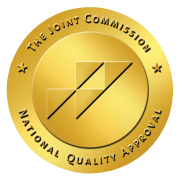Living With Bipolar Disorder in Orange County
Am I Bipolar?
Living with bipolar disorder can be a challenge. Here we explore some ways to stay healthy offer day-to-day solutions.
Most of us have heard about bipolar disorders. The various media and news outlets tend to cover it in a non-descript way. But that approach is not exactly helpful, and as a result very few of us really understand what bipolar disorder is. (The movie Silver Linings Playbook is an example of characters that may struggle with bipolar disorder.)
Even if you have been diagnosed with one of the types of bipolar disorder, you might not fully understand it and, more importantly, how to make sure you are living with bipolar disorder in a healthy way.
Bipolar Highs and Lows
Bipolar common knowledge is if you have bipolar disorder, you likely have times where you are very happy and times where you are very sad. That’s pretty much the extent of most people’s understanding.
The more complex term for this is episodes of mania or hypomania contrasted with depressive episodes. This is where the term manic depression comes from, the term that once referred to bipolar.
Though it is common to call them mood swings, they are fairly intense. And to qualify for a bipolar diagnosis, they have to have a significant negative impact on your life.
Bipolar Mood Swings
Bipolar Highs: During manic episodes, a person with bipolar disorder is gleeful, energetic, or unusually irritable.
Bipolar Lows: Depressive episodes have you feeling hopeless, sad, and without interest in pleasurable activities. Often, the mood shift is accompanied by emotional symptoms as they affect your sleep, thoughts, energy, and judgment.
Seeking treatment helps you live a good life despite the condition. However, there are simple, everyday habits you can adopt to get better control over your symptoms.
Living With Bipolar Disorder in Orange County
The worst thing you can do with a bipolar diagnosis is pretend it doesn’t exist. Bipolar Disorder Treatment comes with a certain degree of acceptance so you can move forward towards healthy change and wellness.
When you fully engage and participate in your treatment, you become an expert in your own individual journey living with bipolar disorder.
This may look like this:
- You understand the symptoms and can recognize them before they become debilitating.
- You actively research and explore available treatment options to ensure you lead a healthy life.
- You work with your treatment professional to draw up a list of achievable goals to work on.
- You develop trust and patience in the process.
- You also learn to communicate your thoughts and feelings with your therapist.
Know Your Triggers
The symptoms of bipolar disorder are often a result of specific life experiences. Knowing your bipolar triggers helps you recognize an oncoming episode and take measures to protect yourself. The most common triggers of bipolar disorder include:
- Stress
- Irregular sleep schedule
- Strained relationships with close friends and loved ones
- Financial strain
- Inability to adapt well to a new environment
*We go further into 10 bipolar triggers and how to manage them in this article.
Monitor Your Symptoms and Moods
If you have bipolar disorder, staying attuned to your thoughts, feelings, and environment helps you intercept mood swings. You are aware of subtle changes in your thoughts, moods, energy levels, and sleep patterns. When you monitor your symptoms and temper, you can prevent a minor change from turning into a full-blown bipolar episode.
Develop an Active Daily Routine
Your lifestyle choices affect your mood, energy, sleep patterns, and eating habits. Developing an active daily routine is a great way to get your symptoms in check and keep bipolar episodes at bay. One way to build an active lifestyle is to structure your life, so you know what to do and when to do it. Other positive ways to improve your life are:
- Having a strict diet – Your body is what you eat. Watching what you eat and having healthy meals ensures you have enough nourishment and energy to keep you going.
- Having a regular sleep schedule – the ups and downs of life can overwhelm you and affect your sleep schedule. Having a regular schedule ensures you get enough rest and are focused on what you need to do to survive every day.
Living With Bipolar Disorder by Getting Treatment
If you are currently living with a bipolar disorder and want help, Lido Wellness Center in Newport Beach offers a full PHP, IOP, or outpatient mental health program that is designed for whole life healing. Our team is available now to answer any questions about our unique program and specifically how we can help you manage a bipolar disorder. Call us today: 949-503-9655.




